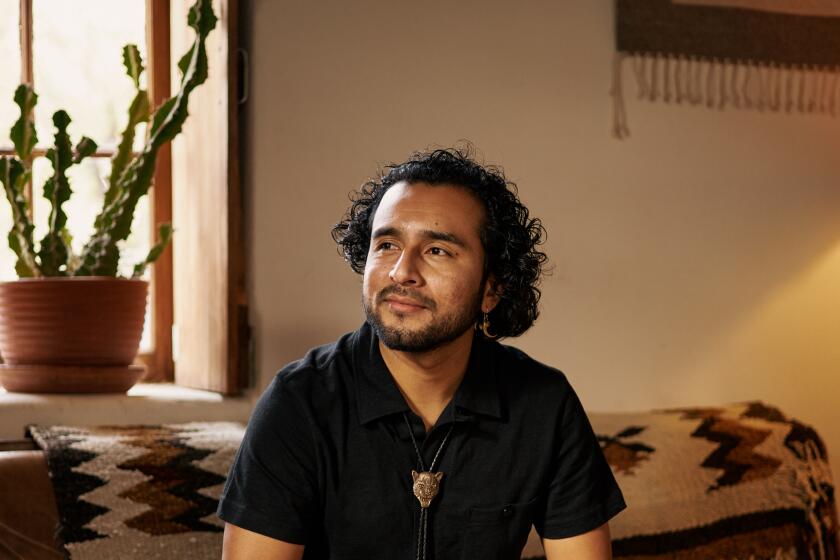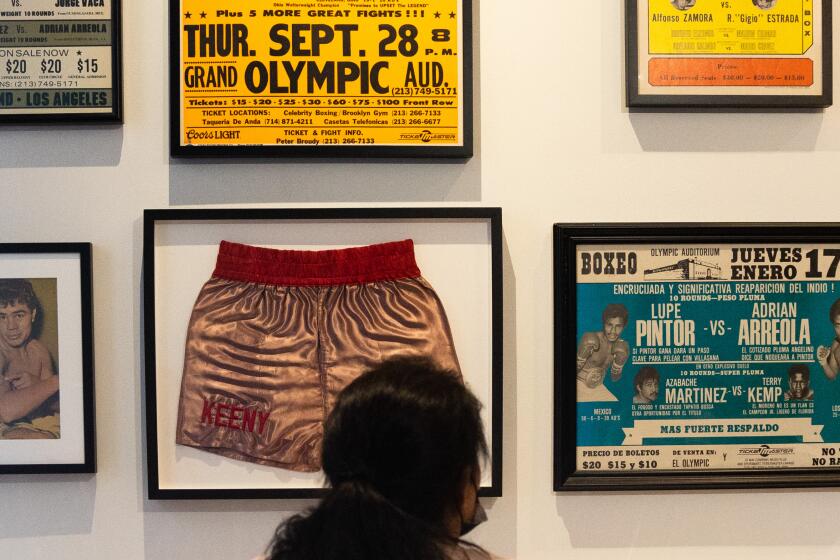
- Share via
Since the Pulitzer Prize was established in 1917 the submission process has not allowed the work of non-U.S. citizens to be considered, but now that’s about to change.
The change will not go into effect until 2025 and will apply only to the eligibility for the books, drama and music awards. Marjorie Miller, one of the administrators on the Pulitzer Prize Board, said conversations about the change to the U.S. citizenship requirement began in December 2022, and that the decision is a step toward recognizing the work of individuals who have done so much for the country and are a part of its culture.
“It’s something we’ve been discussing since last year and I would say it really came into focus when the jury in the memoir category gave their recommendations in December of last year,” Miller said. “They said they thought it was a shame that at least in the memoir category in which they were judging, that only U.S. citizens could apply.”
The Pulitzer Prize Board announced on Tuesday that it will be dropping its U.S. citizenship requirement for awards in books, drama and music beginning in 2025.
Earlier this year, poet and author Javier Zamora published an opinion essay in The Times calling into question the citizenship requirement. Zamora wrote about how he has felt excluded from American institutions, like the Pulitzers, because many of them are limited to U.S. citizens.
“As I was finishing my MFA in poetry, I began to submit my first poetry collection to prizes whose award was a book publication. But over and over I ran into a variation of the following sentence: must be a U.S. citizen to apply,” Zamora wrote.
Zamora said he did not write the essay with the hopes of winning a Pulitzer himself but instead for the generations of migrants who have been overlooked.
“I think the Pulitzer, the National Book Award, etc., have lacked the imagination of imagining people like myself, undocumented people, immigrants all together,” Zamora said. “Now future immigrants are allowed to know that they can be part of an American canon.”
Zamora said that one of the points that angers him the most is that it took so long for this change to happen, especially when Joseph Pulitzer, the founder of the award, was a migrant from Hungary.
As a previously undocumented person, all I’ve wanted was to be considered the same as everyone else. Defined by my merit, not by the place of my birth.
Ingrid Rojas Contreras, a Pulitzer Prize finalist and Colombian native, wrote an open letter to change the citizenship requirement and worked with Undocupoets to help gather signatures. She said she did not know about the citizenship requirement and learned about it after reading Zamora’s piece.
“This has been a long overdue change and it’s part of the historical conversation about who and what we consider to be American,” Contreras said. “Unfortunately that conversation has always left undocumented writers out.”
When Contreras heard the news about the change her initial response was joy. She said that working to bring awareness to the issue was difficult but worth it.
“I was just really happy for us all and in the future and what that means for American writers and all of these books by writers no matter their immigration status, can now be considered and can be part of a long list of recognized and awarded works,” Contreras said.
Contreras said that the work she does is influenced by the fact that she herself is a migrant.
“The work by migrant writers is the work that I admire the most,” Contreras said. “It is something that I really believe in and I was just very proud to be able to put my efforts into organizing and advocating for this change.”
“We’re demanding the respect that we deserve for really being the backbone of the restaurant industry in this country.”
Christopher Soto co-founded Undocupoets in 2015 to protest the exclusion of the work of poets here without authorization in poetry book contests across the country. Through their Undocupoets Campaign, they have raised awareness by using petitions to sway contests to update their requirements.
They are responsible for multiple contests adopting more inclusive submission rules.
Soto said he was happy to hear the news about the change but was disappointed that it took eight years after the creation of his organization. He said that through his work he has learned the complexities within institutions that prevent individuals here without authorization from being successful.
“The announcement is exciting because it’s the unraveling of an oppressive system that has been used to keep undocumented people out of social and economic opportunities in the United States,” Soto said.
Even though this change is a step in the right direction, Soto knows that more work still needs to be done to achieve equality.
For decades, the Olympic Auditorium was a hub for sports and entertainment in Southern California. A new interactive exhibit aims to preserve its history.
“This is a win we must celebrate while knowing that the end goal isn’t inclusion of a select few voices into elite institutions,” Soto said. “We must continue to address violence, poverty and a lack of opportunity globally so that people aren’t forced to migrate in the first place.”
More to Read
The Latinx experience chronicled
Get the Latinx Files newsletter for stories that capture the multitudes within our communities.
You may occasionally receive promotional content from the Los Angeles Times.












